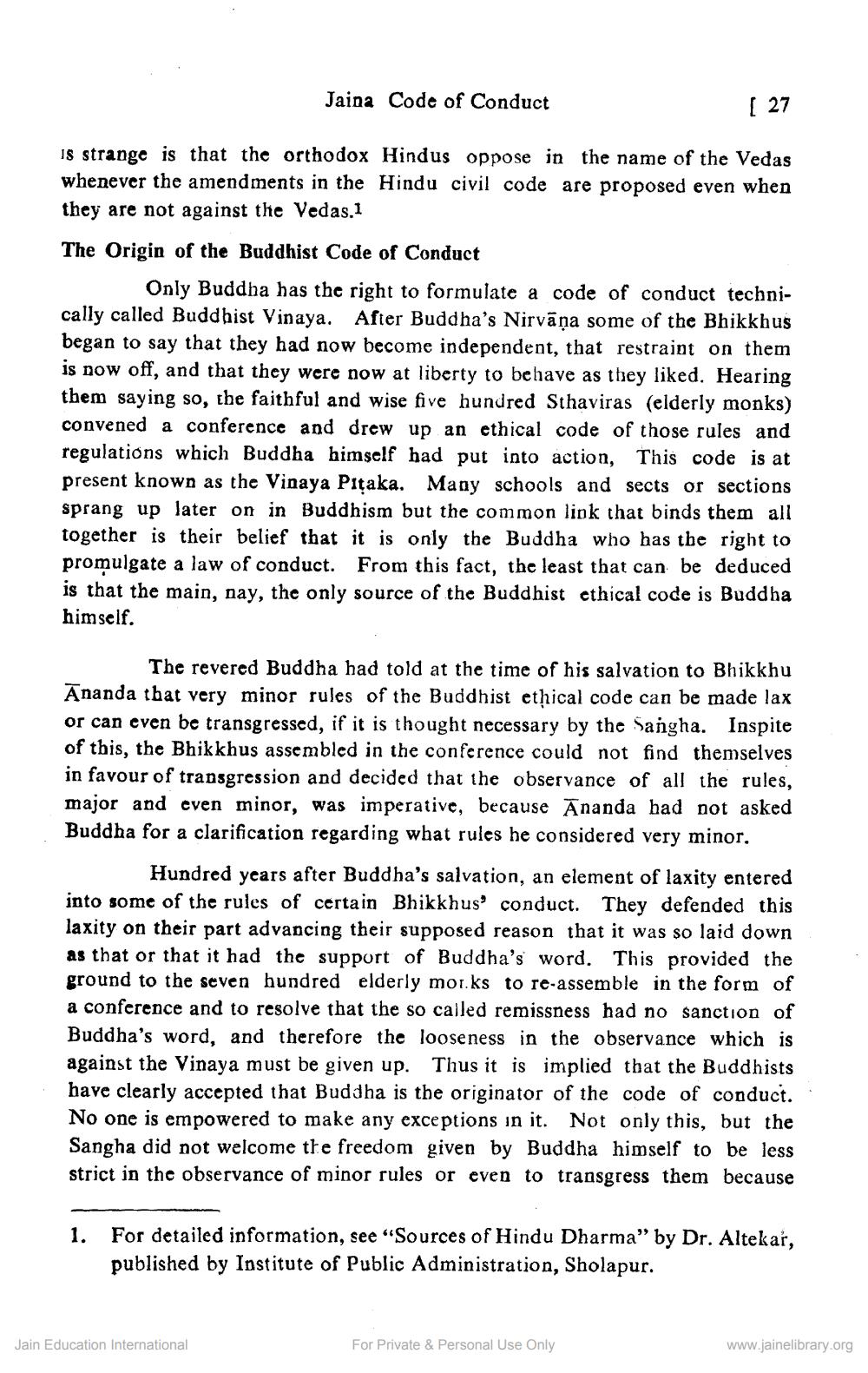________________
Jaina Code of Conduct
[ 27
is strange is that the orthodox Hindus oppose in the name of the Vedas whenever the amendments in the Hindu civil code are proposed even when they are not against the Vedas.1
The Origin of the Buddhist Code of Conduct
Only Buddha has the right to formulate a code of conduct technically called Buddhist Vinaya. After Buddha's Nirvāņa some of the Bhikkhus began to say that they had now become independent, that restraint on them is now off, and that they were now at liberty to behave as they liked. Hearing them saying so, the faithful and wise five hundred Sthaviras (elderly monks) convened a conference and drew up an ethical code of those rules and regulations which Buddha himself had put into action. This code is at present known as the Vinaya Pitaka. Many schools and sects or sections sprang up later on in Buddhism but the common link that binds them all together is their belief that it is only the Buddha who has the right to promulgate a law of conduct. From this fact, the least that can be deduced is that the main, nay, the only source of the Buddhist ethical code is Buddha himself.
The revered Buddha had told at the time of his salvation to Bhikkhu Ananda that very minor rules of the Buddhist ethical code can be made lax or can even be transgressed, if it is thought necessary by the Sangha. Inspite of this, the Bhikkhus assembled in the conference could not find themselves in favour of transgression and decided that the observance of all the rules, major and even minor, was imperative, because Ananda had not asked Buddha for a clarification regarding what rules he considered very minor.
Hundred years after Buddha's salvation, an element of laxity entered into some of the rules of certain Bhikkhus' conduct. They defended this laxity on their part advancing their supposed reason that it was so laid down as that or that it had the support of Buddha's word. This provided the ground to the seven hundred elderly monks to re-assemble in the form of a conference and to resolve that the so called remissness had no sanction of Buddha's word, and therefore the looseness in the observance which is against the Vinaya must be given up. Thus it is implied that the Buddhists have clearly accepted that Buddha is the originator of the code of conduct. No one is empowered to make any exceptions in it. Not only this, but the Sangha did not welcome the freedom given by Buddha himself to be less strict in the observance of minor rules or even to transgress them because
1. For detailed information, see "Sources of Hindu Dharma” by Dr. Altekar,
published by Institute of Public Administration, Sholapur.
Jain Education International
For Private & Personal Use Only
www.jainelibrary.org




